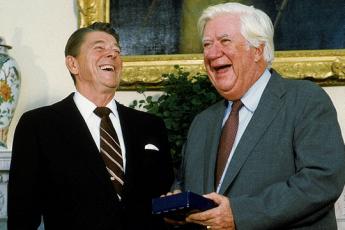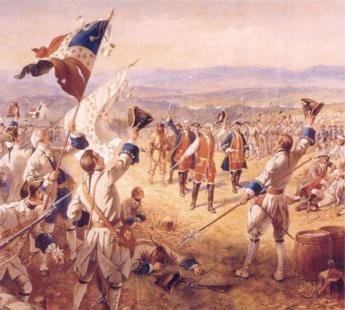Related Topics
No topics are associated with this blog
Celebrating Election Day

|
| Skip O'Neill |
Skip O'Neal, who was Speaker of the U.S. House of Representatives during the Reagan administration, was famous for saying "All politics is local". He was certainly enough right about much of it, that I would agree that All Politics is more local than you might suppose. In the region of big cities, political machine politics is a matter of the ward leaders and their loyal henchmen, who labor daily among people who want something from Government, whether it is a minimum wage, or jobs as poll watchers, or judgeships. In rural districts, it is usually a prosperous farmer or feed-store owner, who widely advises the local district on road construction or particular farm subsidies. Among suburbanites, most of the residents don't want anything specific from government except lower taxes, and there is a growing tendency to invent things for them to want, like gay marriage, or a cleaner, purer environment. However, there is also a widely held view among many people of many backgrounds, that government has no business monkeying with social issues, which in their view should be governed by churches and local secular gatherings. That is to say, a lot of people question whether social issues should properly be governed by majority votes of that minority of citizens who take the trouble to vote. Some of this feeling comes from the strident tone of some of the supporters, the heavy influence of political donations by a few rich zealots, and the irksome intrusion of such advocacy by purchased spot ads in what purports to be entertainment. Some resistance, who knows what proportion, comes from people who believe that all politics should indeed be local, and are annoyed to see how much social advocacy originates and is paid for by proponents from a thousand miles away.

|
| The French and Indian War |
Although many of these opinions are not deeply considered, there is a logic which ought to be pondered. Most of the violent changes of the past can be seen as one splinter group breaking away and joining with a foreign power. The French and Indian War has been described as Americans joining with the English to drive out the French. Shortly after that, a splinter group of Americans split away and joined with the French to drive away the British. George Washington then counseled, and the wide oceans made practical, an American century without foreign allies or entanglements. Finally, Americans joined the British (and to some extent the French) against the Germans, followed by several smaller wars in which we ourselves were the outsiders assisting local groups in foreign countries. The Cold War was a long series of such alliances of insider rebels joining with an outsider, sometimes the Russians, sometimes Americans. The present Middle East is another example, in which we have got ourselves embroiled against nearly the whole Arab world. Just what alignments are to emerge in the Far East is not clear. But over and over the lesson is clear: be wary of splinter groups who are willing to make foreign alliances to advance their own agenda. All politics, by this reasoning, is not only local, but ought to stay that way. And by the way, by this reasoning the Europeans are not fools to reject a European Union, but wise enough to hesitate about the inevitable insider-outsider entanglements which might well ensue.
This may be, as it may be. Meanwhile, traditional American politics is starting down a new path of professional politicians. In this, it seems to be following a trend already seen in corporate life, in volunteer associations generally, and in non-profit organizations. The central theme which so captivated De Toqueville, of a universal adoption of volunteerism, is either dying out, or getting so diluted by other trends that its voice is progressively muted. Just as it is true in other traditionally volunteer associations, in politics the professionals are taking control away from the volunteers.
Originally published: Friday, November 08, 2013; most-recently modified: Thursday, April 11, 2019